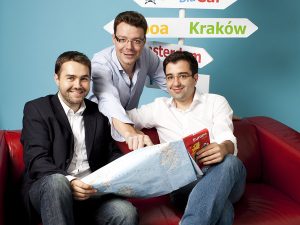Will startups have a shot in the enterprise AI race?
Artificial Intelligence (AI) has become a transformative force across industries, enabling businesses to automate processes, gain valuable insights, and make data-driven decisions. The enterprise AI market is highly competitive, with tech giants investing heavily in research and development.
Startups can focus on developing artificial intelligence solutions that cater to specific industry needs or address niche markets. By understanding the unique challenges faced by enterprises in different sectors, startups can create targeted AI applications that provide substantial value.

Unlike large corporations, startups can adapt to changing market demands rapidly and experiment with new AI technologies and algorithms. This flexibility allows startups to stay ahead of the curve and offer cutting-edge solutions.
Established enterprises often face challenges in adopting AI due to legacy systems and organizational complexities. Startups can bridge this gap by partnering with established companies, offering their expertise and AI solutions as a service.
Also Read: WhatsApp to allow users to edit messages?
Collaborations can provide startups with access to resources, industry knowledge, and a wider customer base. Startups typically operate with limited financial resources, making it challenging to compete with tech giants who have substantial R&D budgets.
Developing and scaling AI models requires significant computational power and data, which can strain a startup’s resources.
AI talent is in high demand, and established companies often have an advantage in attracting top-notch AI researchers and engineers. Startups may face difficulty in hiring and retaining skilled professionals, hindering their ability to develop complex AI models and algorithms.
Enterprises are cautious when adopting artificial intelligence solutions, preferring established vendors with proven track records. Startups must build trust and establish credibility by showcasing successful use cases, partnering with industry leaders, and ensuring the security and ethical use of AI technologies.
Startups should prioritize providing seamless user experiences and delivering tangible value to enterprises. Developing intuitive interfaces, robust customer support, and reliable artificial intelligence systems can help startups differentiate themselves in the market.
Forming strategic alliances with larger enterprises or industry-specific organizations can enhance a startup’s credibility and reach. Such partnerships can lead to access to larger customer bases, shared resources, and knowledge exchange.
Open-source AI frameworks and tools can significantly reduce development costs for startups. Leveraging open-source technologies enables startups to build on existing foundations and accelerate their development cycles.
Addressing data privacy concerns is crucial for startups to gain the trust of enterprises. Implementing robust security measures, complying with data protection regulations, and transparently communicating privacy practices can help alleviate concerns.
While the enterprise artificial intelligence market is fiercely competitive, startups do have a shot at success. By leveraging their agility, innovation, and focus on niche solutions, startups can carve out a space for themselves.
Also Read: Microsoft Build 2023: Big Announcements
However, they must overcome challenges such as limited resources, talent acquisition, and building trust. By adopting effective strategies, such as prioritizing user experience, fostering collaborations, leveraging open-source tools, and addressing data privacy concerns, startups can position themselves as viable contenders in the enterprise AI race.
As artificial intelligence continues to evolve, startups have the potential to disrupt traditional market dynamics and make significant contributions to the enterprise AI landscape.

I am a law graduate from NLU Lucknow. I have a flair for creative writing and hence in my free time work as a freelance content writer.







